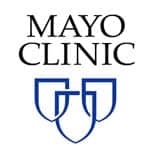Armata Pharmaceuticals Inc, a biotechnology company focused on pathogen-specific bacteriophage therapeutics for antibiotic-resistant and difficult-to-treat bacterial infections, announces that the U.S. Food and Drug Administration (FDA) has cleared Armata’s Investigational New Drug (IND) application for AP-SA02 in prosthetic joint infection (PJI). The company is initiating start-up activities for the Phase 1b/2a trial that will explore the safety, tolerability, and pharmacokinetics of intravenous and intra-articular doses of AP-SA02 as an adjunct to standard of care antibiotics in subjects with PJI.
“Prosthetic joint infection is one of the most serious complications of prosthetic joint implantation,” said Dr. Mina Pastagia, Armata’s Senior Vice President of Clinical Development. “Staphylococcus aureus is a dominant pathogen that drives the need for surgical intervention and prolonged courses of antibiotic therapy. The ability of S. aureus to create biofilms that are refractory to standard of care antibiotics highlights the need for a novel therapy. Phage therapy may fill this need for PJI patients as phage have demonstrated the ability to disrupt biofilm and work synergistically with antibiotics.”
“Armata is excited to explore AP-PA02 in patients who suffer from complicated joint infections that don’t respond adequately to standard of care antibiotics. PJI is a logical extension of our diSArm trial which is targeting complicated S. aureus bacteremia,” said Brian Varnum, Chief Executive Officer of Armata. “With this IND approval, Armata now has four active clinical programs. Today marks an important development milestone for Armata and its investors who set a course three years ago to transform phage therapy from a promising new technology to one that is explored in rigorous clinical settings.”
In addition to evaluating AP-SA02 in prosthetic joint infection and bacteremia due to S. aureus, Armata has advanced AP-PA02 into the Phase 2a component of the SWARM-P.a. study which targets chronic Pseudomonas aeruginosa infections in people with cystic fibrosis (CF). In February, the company gained IND clearance for AP-PA02 in a second indication, non-cystic fibrosis bronchiectasis (NCFB) targeting patients with chronic P. aeruginosa infections in a Phase 2 trial (“Tailwind” study).
[Source(s): Armata Pharmaceuticals Inc, PR Newswire]
Related Content:
Bacteria Causing Prosthetic Joint Infections Can Be ID’d Using Blood Test, According to HSS Researchers





